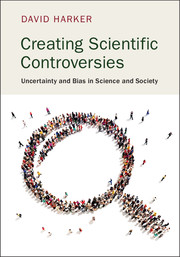Concluding remarks
Published online by Cambridge University Press: 05 October 2015
Summary
When significant scientific consensus is concealed and the impression is created that particular claims are controversial within the relevant scientific community, dangerous and regrettable consequences follow. First, we produce a population that is less well informed that it should be. For all our cognitive failings and limitations, we are capable of grasping and understanding remarkable and astonishing features of our world, ourselves, our past, our co-inhabitants on this plant, living cells and the molecular machinery that drives them, distant galaxies and stars, and the forces that move, shape, alter and maintain everything from the smallest constituents of matter to the fabric of the cosmos. Not everyone cares to invest significant time and energies tracking the moving frontiers of modern scientific investigation, but general scientific acumen would no doubt be improved if we were better at distinguishing worthwhile criticisms of modern scientific conclusions from frivolous ones, if we learned to place a more appropriate level of confidence in our own abilities to evaluate complex issues and if we better appreciated both the unavoidable fallibility of scientific conclusions and yet also the complete and unambiguous compatibility between scientific fallibility and the existence of overwhelming evidence that, concerning particular scientific claims, we almost certainly are not wrong.
Levels of scientific literacy lower than they otherwise would be is one regrettable consequence of creating controversy. More practical consequences are also apparent. When we ignore expert opinion, we risk our health, our well-being and the quality of life of future generations. We should be vigilant and alert to the possibility that something might appear controversial and uncertain only because that appearance benefits a select few at the expense of a great many. Once we are suspicious that the appearance of controversy has been created, we should be extremely cautious about rejecting the conclusions of scientific consensus. We should be wary that our emotions, desires, overconfidence and personal experiences are playing an irrational and central role in our reasoning and judgement. We should seek the most reliable evidence, rather than settle for what's easiest to recall. We should evaluate arguments critically and consider the possibility that better explanations for cited evidence might be available but are unknown to us personally.
- Type
- Chapter
- Information
- Creating Scientific ControversiesUncertainty and Bias in Science and Society, pp. 248 - 250Publisher: Cambridge University PressPrint publication year: 2015



